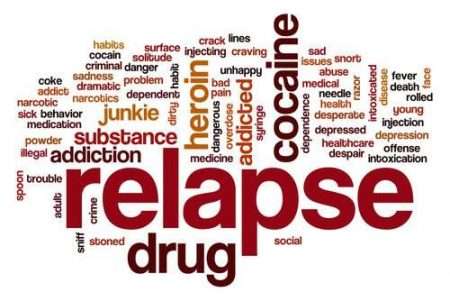Table of Contents
Recovery From Alcohol Addiction Can Be Tough, Not Just for the Person in Recovery, but Also for Those Around Them
Finding out that your partner has a drinking problem raises a lot of difficult topics that need to be dealt with. Thinking ahead, people may ask themselves, “What now? How will life be different from this point?”
In many cases, there is only one person in a relationship who turns to a life of sobriety, leaving the partner of an alcoholic with questions as to how can they help their significant other in their recovery.

Download Our Brochure
What Can I Do to Help?
The answer is not simple and depends on several factors. Are you a partner or an alcoholic who has not received treatment? Or are they in recovery from their addiction? Have they asked you to stay sober with them? Or are you considering this choice all on your own? More on getting help.
All in all, people in relationships tend to have a greater risk for relapse, especially when one person is committed to being sober while the other isn’t. Therefore, it may be a good idea to quit or cut down your own drinking for at least a temporary period, in the initial stages of your loved one’s recovery.
One of the key questions and hardest to answer is – do I have to quit drinking if I am the partner of an alcoholic?
Should I Quit Drinking to Help My Alcoholic Partner?
If your partner is refusing to get help or isn’t planning on quitting, your quitting will likely not inspire them to change. Of course, this can be motivational in some cases, but in others, the alcoholic may find your actions as nagging or pressuring, thus triggering an opposite reaction.
If a person is trying to quit or is in recovery, they need your support now more than ever. In therapy and aftercare, addicts are encouraged to create a sober support system, which is usually done by joining a fellowship, such as Alcoholics Anonymous, and having a sponsor or sober buddy. Meanwhile, families and friends are taught how to be one.
Consider Quitting for a Short Time
Does this mean you have to quit drinking as well? No, but it is extremely helpful in preventing relapse if your partner lives in an alcohol-free environment and is not exposed to triggering situations, such as seeing others drink. It is especially important at the beginning of their sobriety when the risk of relapse is the highest. If you are happy to stop, doing so at this stage would be very helpful to your partner.
In addition, different people have different attitudes. Some addicts in recovery find it triggering to see alcohol or other people drinking and thus avoid such situations. Others, however, don’t mind being around people who drink.
Communication Is Key
In the end, being supportive is always the best choice, but it also comes down to communication and compromise. Being able to discuss these things with your partner can be significantly helpful in itself. Early recovery can sometimes seem a lonely business, and a show of support and understanding can make all the difference.

Finding Motivation to Change
If alcohol is part of your life, quitting or cutting down may seem challenging at first. However, most people do end up changing their habits, if only temporarily, in order to support their loved ones. What’s more, is that many people feel good about doing so. In a study published in The Journals of Gerontology Series B: Psychological Series, it was learned that couples who share similar drinking habits are happier. Getting sober or meeting your partner halfway can strengthen your relationship.
Recovery can be mentally and emotionally challenging for the addict, and they may feel depressed and stressed out. Seeing other people drinking can make them feel isolated, thus putting a strain on your relationship. If your partner has asked you to quit drinking because of this, you should consider the effect it might have on your relationship if you say no.
The Best Chance of Recovery
In addition, women tend to have a harder time with recovery and are more susceptible to relapse. Thus, is it even more important for them to have the right support?
If your partner attended a residential rehab and has therefore been in a sober environment for a while, coming back to a home filled with alcohol can be a recipe for trouble.
Consider that quitting drinking for a short period is never a bad idea for your wellbeing as well. Having a sober partner around will make it easier than you think. Also, keep in mind that if you don’t think you can stop, you should ask yourself if you might have a problem too.
What if I Don’t Want to Quit Drinking for My Partner?
So your partner has admitted to being an alcoholic and quit drinking – why should that affect you? If you don’t have a problem with alcohol and enjoy drinking, it can feel unreasonable if they ask you to quit as well. And if you don’t have a problem, you may start to feel resentful that they want you to stop. Don’t worry, that feeling is normal.
However, it would help if you remembered that addiction isn’t a choice – it is a brain disease, with a high chance of relapse. Your partner may need you to stop drinking around them for their sustained sobriety – so consider a compromise. This might mean that you don’t keep alcohol in the house, or avoid alcoholic drinks when dining out together. It may mean that you only drink alcohol when you’re out with friends, or on a certain evening.
Agree to certain terms and conditions if you decide to drink inside the house (or when you start to reintroduce alcohol into your home). Perhaps avoid drinking in certain rooms, or avoid keeping alcohol out in the open. Some couples find it helpful if the non-sober partner drinks out of an opaque cup.

Things to Watch Out For:
Don’t lie about your drinking. Lying to your significant other, especially in a sensitive period such as early sobriety, can be detrimental to their recovery and your relationship. Not to mention, being forced to lie or be secretive can create resentment towards your partner. If you don’t want to quit drinking for your partner, you should just be honest with them.
Avoid becoming codependent. Your partner can ask you to stop drinking, but they cannot force you, just like a vegetarian person cannot make their partner stop eating meat. A lot of people become codependent on their addicted partners because they feel responsible for their well-being. Remember, you can and should be supportive, but ultimately, it is up to them to maintain their recovery. If you do choose to become sober, make sure you are also doing it for yourself.
Be careful about secrecy. Even if your partner knows you are still drinking, being secretive about your behaviour, such as drinking alone in a separate room, not saying that you’re out drinking with friends, or pretending that you’re drinking another beverage, can instigate a problem in yourself.
Tips for Helping a Partner in Recovery:
-
Remove all alcohol from the house
It’s true what they say, out of sight, out of mind. Seeing alcohol every day when you’re trying to deal with cravings can trigger a relapse. It is one of the easiest things you can do without changing your lifestyle.
-
Try to avoid drinking in front of them
Without lying or being too secretive, limit your partner’s exposure to alcohol if you agree to continue drinking during their recovery. Don’t leave an open bottle of wine out, or use opaque, non-alcoholic glassware when you do.
-
Avoid coming home drunk or hungover
You’re in Recovery and Your Significant Other Drinks. 3 Tips for Staying Sober. In situations where you compromise on your drinking habits, it is recommended that you do so responsibly. Your partner seeing you drunk can be very triggering. If you overdid it, consider staying with a friend until you sober up.
-
Avoid risky environments
One piece of advice that is given to loved ones of addicts is to help them avoid risky environments. For example, a holiday party where everyone is drinking can be tough to handle for someone just starting sobriety. When you encounter such situations, do your best to be understanding. If you did not quit drinking during their recovery, this would be a great time to show your support.
-
Make sure they have a sober support system
A lot of the time, friends, families, or partners cannot be a sober support system for their loved ones in recovery. Hence, it is important to make sure they have one, especially if you are not planning to be sober yourself. Make sure they are attending Alcoholics Anonymous or another sobriety-focused fellowship, and make sure they have a sober buddy or sponsor that they can always contact if you cannot be there for them.
-
Give them a heads up
This is especially important when you start to reintroduce alcohol into your home. If you plan on drinking your dinner that day, let them know beforehand so they know to prepare for it. Also, ask if it’s okay. They might be having a bad day with strong cravings.

Help Your Partner Today
While quitting drinking to support a partner in recovery is not a must-do, it is highly recommended. Addiction is very much a treatable disease, but understanding and encouragement are crucial. One of the major triggers for relapse is that people do not get the right support during their recovery. See the alcohol rehab page.
Remember, recovery can be challenging for families and friends as well. Hence, it is important to know where to go for support. Attending Al-Anon, a fellowship dedicated to loved ones of alcoholics, has helped many people. If your partner hasn’t quit yet or is struggling with sobriety after treatment, give us a call to find out how we can help.
-
References
- Buddy T. and Umhau, J. C. Loving Someone With Alcohol Use Disorder – Do’s and Don’ts. [Accessed November 2025].
- Al-Anon. Are you one of the people affected by someone else’s drinking? [Accessed November 2025].
- Drinkaware. Understand more about your drinking. [Accessed November 2025].



